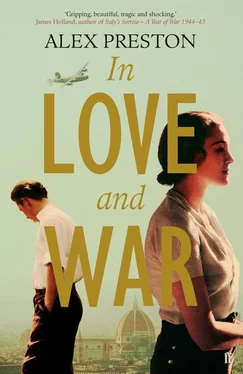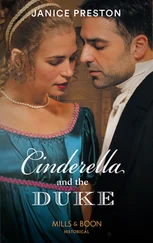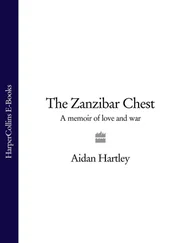Carità is marching on the north bank of the river. Fifty men in yellow fezzes, a squad of Fascist Youth, a band playing the Fascist anthem, ‘Giovinezza’. All goose-stepping loyally after him, this short-trousered messiah, whip in his hand, high voice reaching even over the music. — Me ne frego! Vincere e vinceremo! Viva Il Duce! Esmond sobs against Ada, watching the marching through his tears. Now that England and Germany are at war, the MVSN seem louder and more urgent, as do the Fascist politicians who stand on the steps of the Palazzo Vecchio each afternoon speaking about the coming crisis, the need for a violent shock to Anglo-American hegemony. There’d been gunshots the night Britain declared war on Germany, fireworks over the Piazza della Signoria.
Esmond sees that Carità is leading the procession over the bridge towards them. Like a column of ants they stamp round the corner from the Lungarno and make their way up the curved cobbles. Esmond and Ada press themselves to the wall; he draws a sleeve across his face, swallows a sob. When Carità is level with them, he points his whip, leering. — Soon , he says in English. — Very soon . They march on, the bridge juddering under their footsteps. The teenage soldiers of the Fascist Youth look scornfully at them as they pass. They can still hear the music, the heartbeat thud of the bass drum, long after the parade has disappeared towards the Palazzo Pitti.
Ada takes him in her arms again and he hugs her back very hard, thinking it so fiercely he’s sure she can hear: I won’t lose you .
Recordings. St Mark’s English Church
FLORENCE, 1939–1941
( transcribed by Ada Liuzzi )
1 . A-Side:Harold Goad and Friedrich Kriegbaum discuss the building and authorship of the Ponte Santa Trinità (29′ 23″)
B-Side:‘This is not a diary. Douglas always said I should keep a diary, record everything. Everything is interesting, he used to say. Get it down . I don’t believe him. I want to forget.
Nor is this an attempt at auto-psycho-analysis, to file my despair with Anna and Philip’s letters and Fiamma’s snood which, in the days after her death, found its way into my bedroom, I’ve no idea how.
The only thing to do with unwieldy objects is burn them, the only thing to do with a memory is tug it around like a fusty dog until you’re forgiven for tying a brick around its neck and drowning it.
I realised something last night: the discs we record onto, that make up our archive — and what a grandiose word that is for these programmes, which, as I listen to them, strike me as half-baked twaddle. People listen to this because they are charmed by the idea of an outpost of Englishness in Italy, because they visited Florence on some ghastly tour they saw advertised at the back of the Daily Mail and they think we’re guardians of Anglo-Italian culture.
Where was I? Oh yes, the discs. We’ve only been recording on one side. So I’ve begun this little memorandum on the other. It’s comforting to think they’ll stay here in Florence, in a box in the British Institute, or packed into Ada’s attic. And maybe she will, on a whim, very late one night and rather tragic, dig me out, hear my voice and be filled with me. Who would have believed the curved cornet of our direct-to-disc-recorder could be a time-travelling device?
I’ll be long gone, in a rum shack by a beach somewhere, or teaching at a frowsty colonial university — Wollongong, perhaps. I’m going to make old bones, you’ll see, crawl out of Europe, the dark continent.
Perhaps she’ll be with me, Ada. Although there doesn’t seem much chance of that now. After practically heaving me over her shoulder after Anna’s death, the barricades went straight back up. Every move I make towards her, she bats away. So I’m here, in a funk, mixing metaphors, leading a circumscribed, spinsterish life, writing postcards into the void.
Three, four, five — that’s the bell of Santo Spirito you hear. I’m going to open the shutters a bit. There’s the faintest glimmer of dawn out in the square. We’re having an Indian summer. It’s been like ’14 — peace before the nightmare. Although it’s beginning to look like it might never start here. We expected Musso to jump straight into bed with Hitler, to invade France, or Greece, or Britain. But it’s all gone rather quiet — Il Duce is busying himself with Albania, thumbing his nose to Adolf and his war games to the north. Perhaps Italy and Spain really won’t join in, perhaps Stalin will realise Hitler is a bigger monster than the one that greets him in the mirror each morning. Good night, whoever you are. I’m shattered.’
2 . A-Side:Esmond Lowndes and Bernard Berenson discuss symbolism in Primavera by Botticelli (27′ 33″)
B-Side:‘I’ve been trying to isolate the part of my mind where Anna, Philip and Fiamma dwell and close it down, like an aeroplane with an engine on fire. The pilot shuts it off, hoping to glide home safely on the one that remains. Still, my eyes are drawn to the flames on the wing.
I had another letter from my father. The folly of me staying on here, how I’ve shirked my duty, the essential uselessness of what I’m doing given that the British Union is all but wound up. Circumstances have overtaken them. Pa says he’s already spoken to his pal Major-General Fuller about getting me into the Guards. He’s tried to sign up himself, but there’s not much call for a one-armed fifty-four-year-old. Yet. I haven’t answered his letter.
It feels like when I was first in Florence. The warmth has given way to rain. There’s no one around. Bloody lonely. Having Ada here every day is too frightful. The way she looks at me as she stands at the door at the end of the evening, her brolly in one hand, already half in the rain. Every time, I dare myself to say Wait! but I never do. I think, secretly, I’m rather enjoying the part of tormented lover. It takes my mind off Philip, off Anna, off the more weathered scars left by Fiamma, and all that was lost in ’37. Love is a splendid distraction from despair.
I’m recording this on the other side of a discussion Bernard Berenson and I had today. Amazing that he’s still here — although he arrived in Florence before the 1919 cut-off, so he’s legit. Still, I’d be feeling a bit exposed if I were one of the most famous Jews in the country. I went up to I Tatti for dinner after we’d recorded the show. Strange set-up. I mean, with the wife and secretary and the very obvious tension, but the art makes up for it. Gloriousness on every wall — Pollaiolo, Lorenzetti, Sassetta. Ada came with me, she took my hand as we went through Poggio Gherardo, the city glowing below us. It was astonishing what the mere feel of her hand in mine did — little electrical explosions moving all the way up my arm, across my body. Douglas was right: Fascism is just a refuge from the powerlessness of love.
The talk at the Berensons’ was all of the war, of how Italy won’t be ready for combat for at least another three years. No automotive industry, an agricultural economy. They’ll have to sit it out with the tea and oranges, as pa would say, as the north falls apart. It looks to be a lengthy thing, none of that Panglossian “It’ll be over by Christmas” stuff this time.
There was a moment last night, as we came down from the hills into the first streets by lamplight, and a group of working men sat around a wireless on the viale Augusto Righi, when I was suddenly aware of the fact she was Jewish. It’s perhaps all this talk of what’s going on in Germany, in Poland, the camps holding people to whom — even though she says she doesn’t believe in God — she must feel some sort of link. Perhaps it was that we were arm-in-arm in public. I tried talking to her about it, but she’s got this way of turning a corner when the conversation is delicate. There’s a sad secret in her smile, but I’m buggered if I know what it is.
Читать дальше












